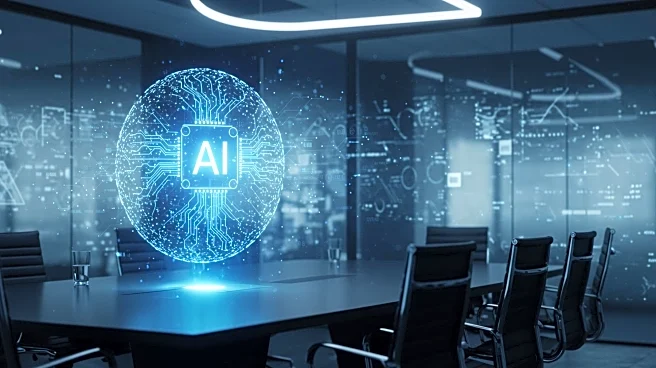What's Happening?
OpenAI has launched its latest artificial intelligence model, GPT-5, with a focus on the enterprise market. Despite a rocky start with consumer applications, GPT-5 is gaining traction among startups and companies such as Cursor, Vercel, and Factory, which have integrated the model into their products and tools. The model is praised for its faster setup, improved performance on complex tasks, and competitive pricing. OpenAI has expanded its enterprise sales team, operating independently from Microsoft, its key investor and cloud partner. The company aims to convert early developer interest into sustained enterprise adoption, with GPT-5 showing significant improvements in coding and reasoning workloads.
Why It's Important?
The rollout of GPT-5 marks a strategic shift for OpenAI, emphasizing the lucrative enterprise sector over consumer applications. This move positions OpenAI to compete with Anthropic, a rival that has dominated the enterprise AI space. The adoption of GPT-5 by major platforms and companies indicates a growing demand for advanced AI solutions in business operations, potentially transforming industries such as technology, retail, and professional services. The model's ability to handle complex tasks and reasoning could lead to increased automation and efficiency, benefiting companies that integrate AI into their workflows.
What's Next?
OpenAI is expected to continue expanding its enterprise footprint, leveraging GPT-5's capabilities to attract more business clients. The company is exploring additional funding opportunities, including a secondary stock sale, to support its growth and infrastructure needs. As enterprise demand for AI solutions rises, OpenAI and Anthropic are likely to intensify their competition, seeking to lock in customers and build long-term business relationships. The success of GPT-5 in the enterprise market could influence future AI developments and investments, shaping the landscape of AI technology in business.
Beyond the Headlines
The shift towards enterprise AI solutions raises questions about the ethical and cultural implications of increased automation in the workplace. As AI models like GPT-5 become more integrated into business operations, concerns about job displacement and the need for new skill sets may arise. Additionally, the competitive dynamics between AI companies could lead to rapid advancements in technology, necessitating discussions on regulation and responsible AI use.









